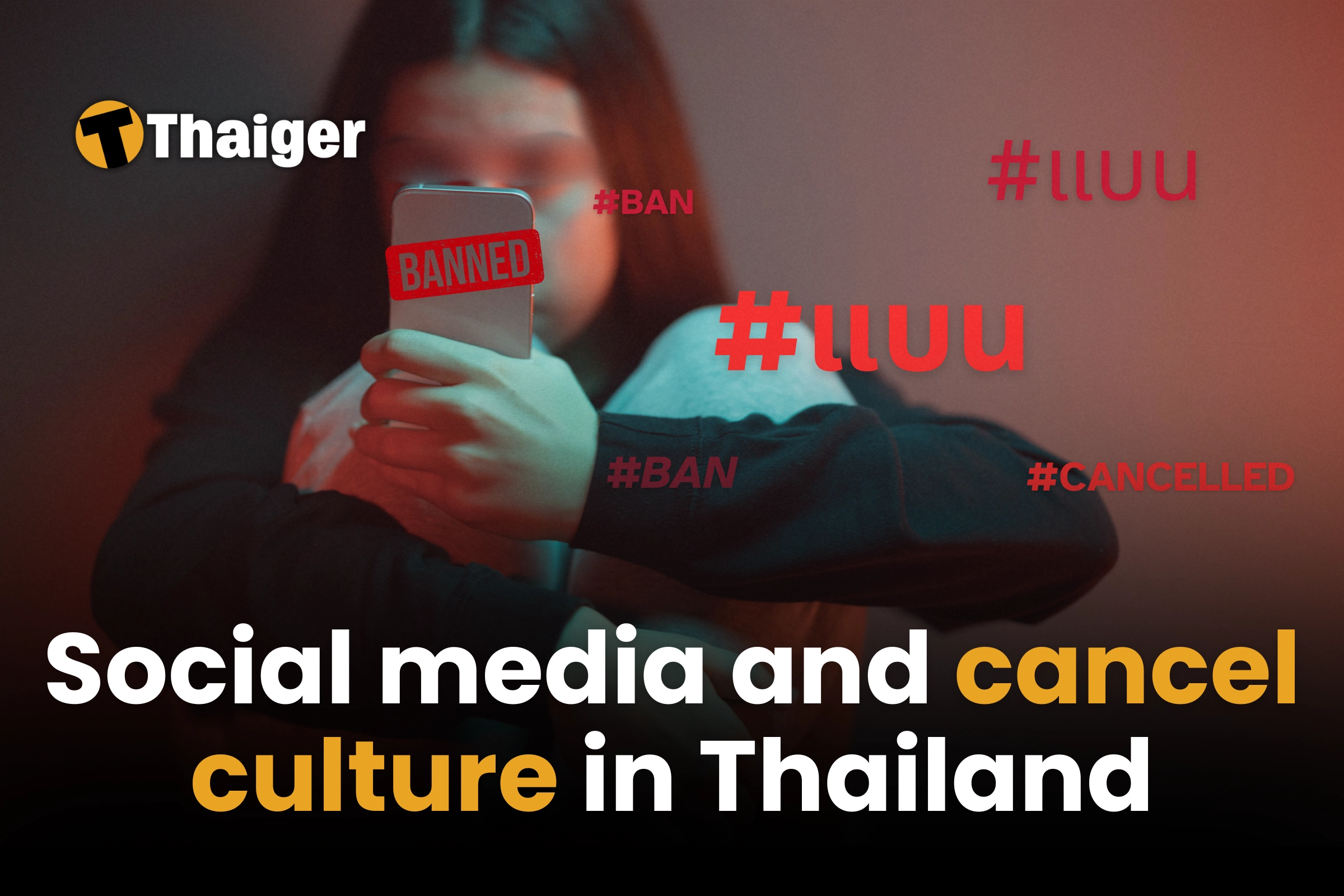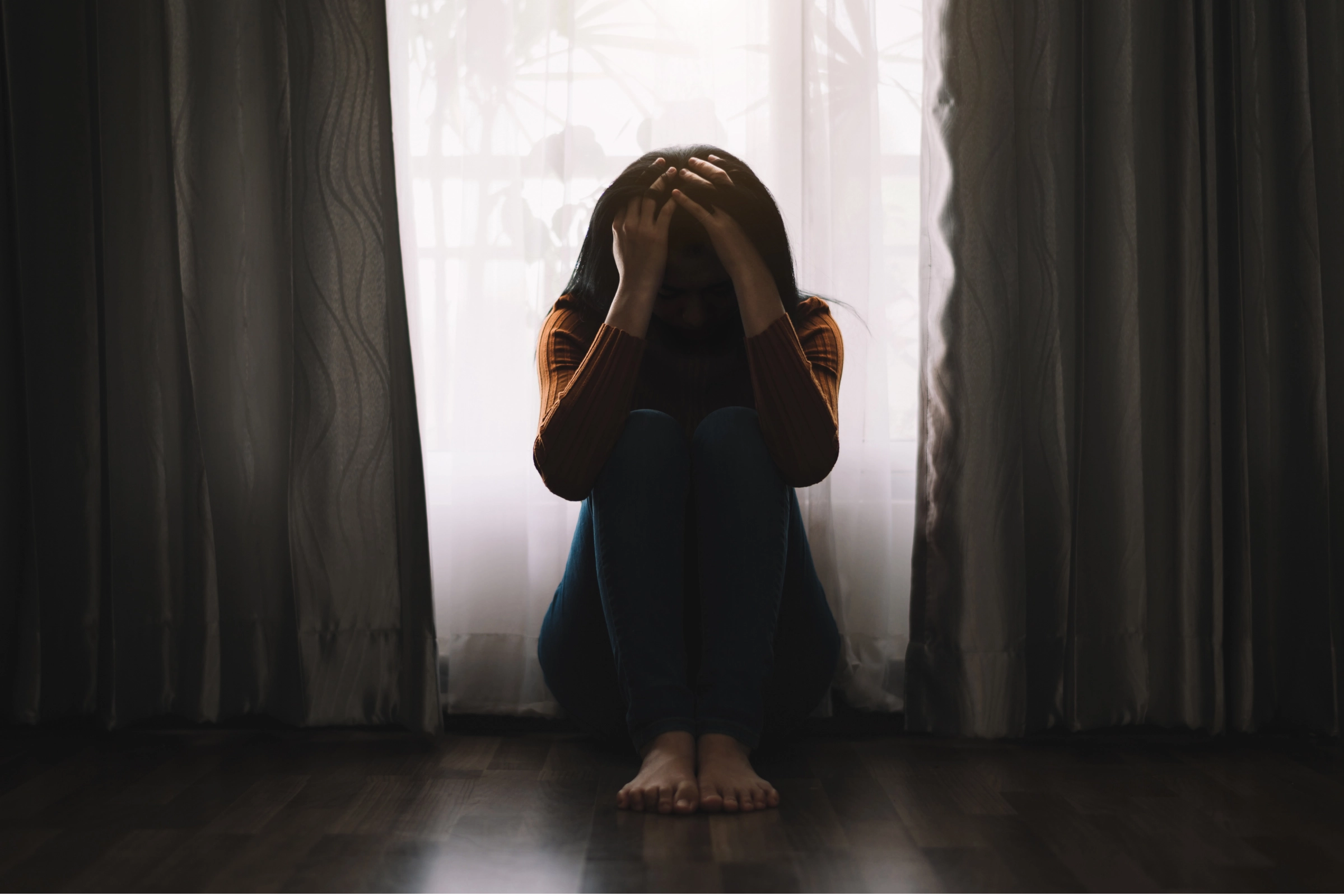Social media and cancel culture in Thailand

Today, anyone with a platform can be ‘cancelled’ on social media, and in Thailand, that’s no different. Social media has become a powerful place where people connect, share views, and hold others accountable. But in Thailand, cancel culture isn’t just about calling out celebrity mistakes. It often ties into politics, societal expectations, and cultural identity. In this article, we will explore why it’s become so influential.
What cancel culture looks like in Thailand
Cancel culture in Thailand revolves heavily around social media platforms like Twitter, TikTok, and Facebook. When someone is cancelled, it often involves viral hashtags that spread quickly, calling on users to unfollow, criticise, or boycott the person or organisation in question. One unique aspect in Thailand is the tendency to ‘ban’ someone with hashtags like #แบน (ban), which brings a sharp focus on the figure’s actions or lack of action.
One example that many Thais are familiar with is the trend to cancel influencers, celebrities, or even brands over political neutrality. While cancel culture often looks similar in other countries, in Thailand, cultural values like ‘saving face’ and respect for elders mean that criticisms can be intense and emotional, especially when expectations around loyalty and national pride are involved.
The famous 2020 Lisa Manobal controversy
One of the biggest examples of cancel culture in Thailand involved Lisa Manobal, a member of the K-pop group BLACKPINK, in 2020. Lisa, who is Thai, faced criticism during a period of intense political protests. Many supporters of the pro-democracy movement accused her of being silent on important issues.
Lisa had a video of herself dancing to a Thai song, ‘ปูหนีบอีปิ๊’ (Pu Neeb Ee Pi), on social media. While fans celebrated her for representing Thai culture, others felt differently. People questioned why she hadn’t used her platform to speak out on political matters.

Fans and critics alike saw her silence as a lack of support for Thai citizens. Comparisons were made between Lisa and other Thai celebrities who had voiced support for political change. Some fans argued that Lisa might have kept silent for safety reasons. Concerns for her family or restrictions by her management, YG Entertainment, were possible explanations.
This incident highlighted how quickly public opinion can turn. When it comes to political expectations, people can be unforgiving toward public figures.
Why people get cancelled in Thailand
Cancel culture in Thailand often revolves around three key issues: social justice, political views, and missteps in public behaviour. These themes capture what Thais care about and reflect how society expects public figures to act.
1. Social justice: People are increasingly vocal about issues like LGBTQ+ rights, inequality, and discrimination. Public figures who show a lack of awareness or sensitivity around these topics can find themselves quickly cancelled.
2. Political views: In Thailand, politics can be a sensitive subject, but it’s also one that people feel passionate about. As seen in the Lisa case, fans expect public figures to stand up for political reform, especially when they’re Thai and have a platform that could bring international attention to the issues.
3. Missteps in public behaviour: Thais expect celebrities to act with respect and caution in public spaces. Anything seen as rude, insensitive, or overly indulgent can trigger a swift backlash. Cancelling public figures over behaviour that doesn’t align with traditional Thai values is common, especially if it’s something that goes viral.
Cancel culture isn’t limited to these issues, but these are the areas that tend to gain the most attention in Thai social media spaces. The difference here is that cancel culture isn’t just about punishing, it’s often about enforcing social norms and promoting certain values.

When cancel culture gets out of hand
Cancel culture sometimes serves a purpose, like when people are cancelled for harmful behaviour. If someone repeatedly bullies others or is a bad role model, holding them accountable can make sense. This is especially important for celebrities with young fans looking up to them.
But cancel culture can also go too far. Today, even minor mistakes or different opinions can lead to extreme reactions. It’s common to see people rushing to the comments to troll, shame, or criticise. With how fast social media moves, criticism can turn into a ‘hate train’ in no time.
This intense judgement can feel overwhelming. For expats, it’s important to understand that cultural differences or misunderstandings can sometimes lead to online backlash.
Is cancel culture stifling free speech?
Supporters of cancel culture argue that it’s a way to bring justice. Critics, however, see it as a threat to free expression. In Thailand, this debate is tricky, especially with cultural expectations around respect.
Cancel culture gives ordinary Thais a way to hold powerful people accountable. For some, it’s a tool to push for change. Many young people, for example, see cancel culture as a means to make progress.
But others feel it discourages open conversation. The fear of being cancelled may keep people from sharing honest opinions. Some worry that it creates a climate where differing views are unwelcome. This can be especially challenging for expats who may not be familiar with Thai social norms.
The mental toll of cancel culture
Being cancelled isn’t just a trend, it has real effects on people’s lives. The psychological toll on those who are cancelled can be severe, from anxiety and stress to lasting impacts on their careers and personal lives. Public shaming on social media can make people feel isolated and rejected, especially when it turns into online harassment.
Some mental health experts say that cancel culture can lead to a form of social bullying. For public figures, especially those who are young or relatively new to fame, the pressure to be perfect and avoid criticism can be overwhelming. This impact on mental health is something often overlooked in discussions about cancel culture, but it’s an important part of the conversation.

How it shapes Thai Pop culture and society
Cancel culture affects Thai pop culture in noticeable ways. Celebrities and influencers are now cautious about what they post, say, or share. Brands, too, are wary of associating with controversial figures. Even minor missteps can lead to large-scale backlash.
This cautiousness influences pop culture. Some believe that cancel culture restricts creative freedom, as public figures avoid risks. However, it also pushes many celebrities to be more socially responsible. This balance between caution and social responsibility is shaping Thai pop culture today.
In society at large, culture can shift norms and create new expectations. People may feel more responsible for staying informed and socially aware, knowing that any misstep can lead to criticism. While this can be positive, it can also create a culture of surveillance where everyone is watching and judging one another.
Moving forward: Can cancel culture become constructive?
There’s an ongoing debate about whether cancel culture can evolve into something more positive. Some suggest that instead of cancelling someone entirely, we should focus on ‘calling in,’ which means addressing an issue privately or constructively instead of publicly shaming someone. This approach could create more room for learning and growth rather than just punishment.
Another possibility is to promote dialogue rather than division. Thai cancel culture can continue to be a force for good if it encourages accountability while also allowing people the chance to learn from their mistakes. Understanding the culture in Thailand helps you navigate social expectations and cultural dynamics.
Where do you stand?
So, what do you think? Is cancel culture in Thailand a necessary form of justice, or is it getting out of hand? Understanding the complex dynamics of cancel culture can give you a new perspective on the social landscape here. Whether you agree with it or not, cancel culture is here to stay, and it’s reshaping the way people interact online. Just remember, in Thailand’s close-knit digital space, everyone’s watching, and it’s easy for anyone to be next in line.
Other resources on Thai pop culture:
Latest Thailand News
Follow The Thaiger on Google News:


























